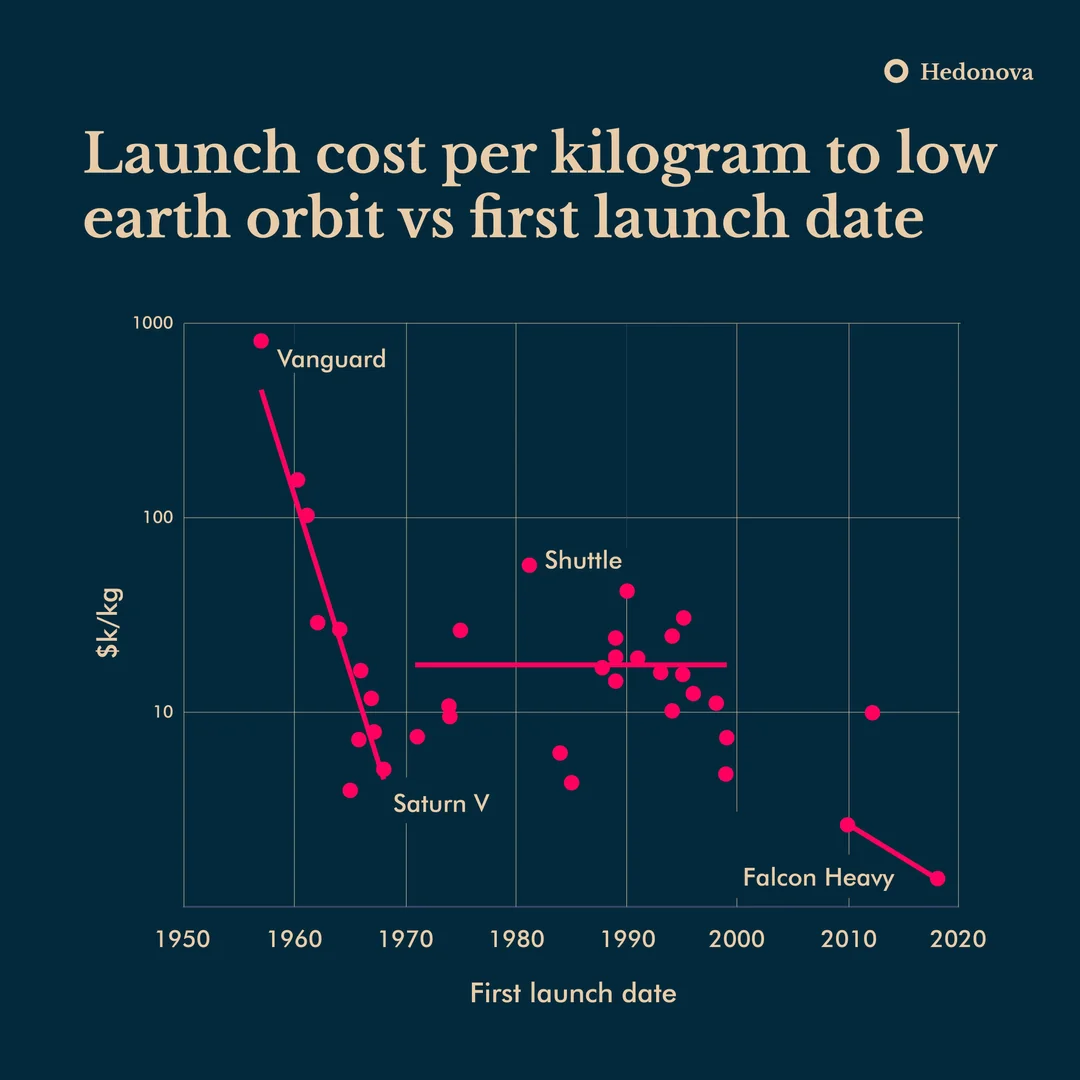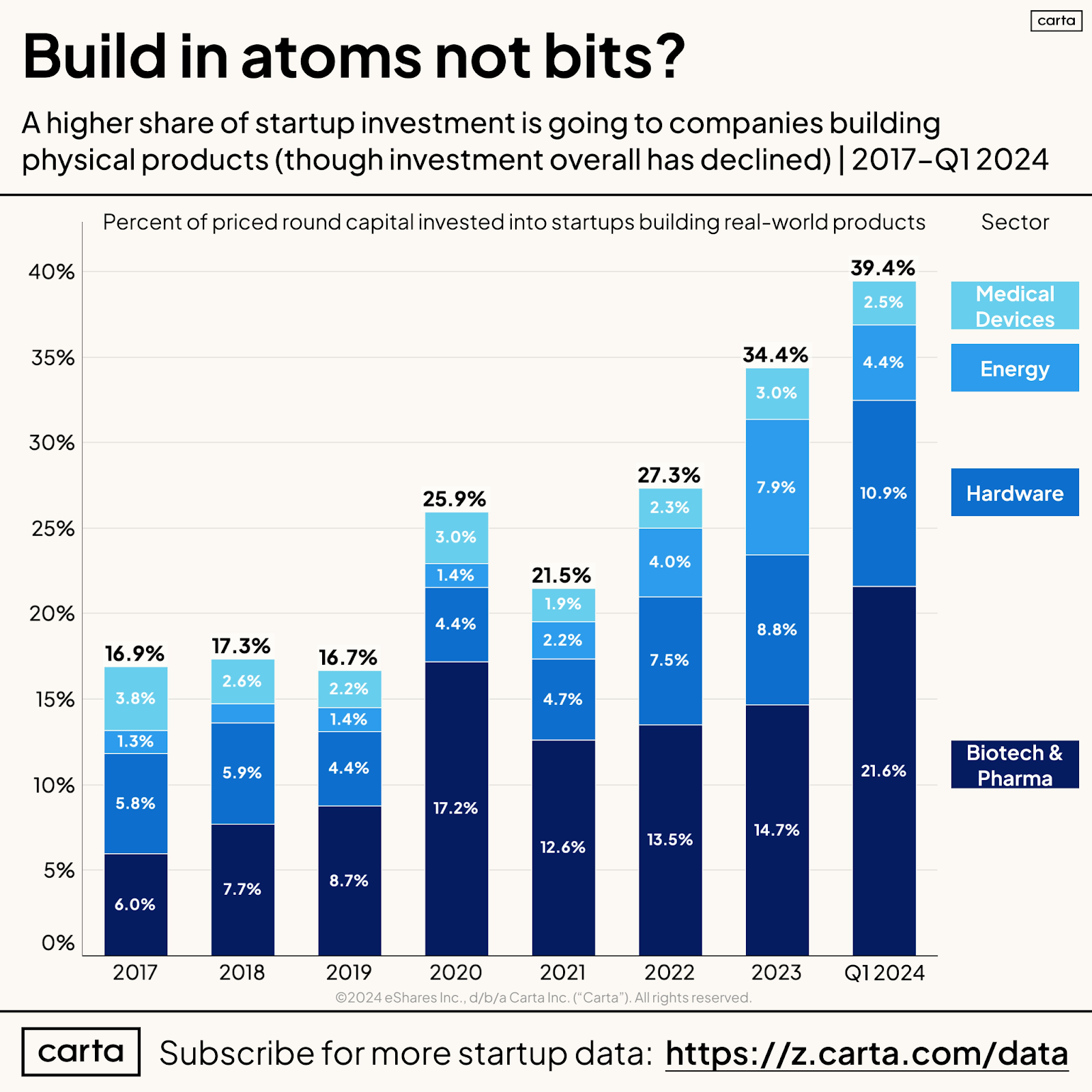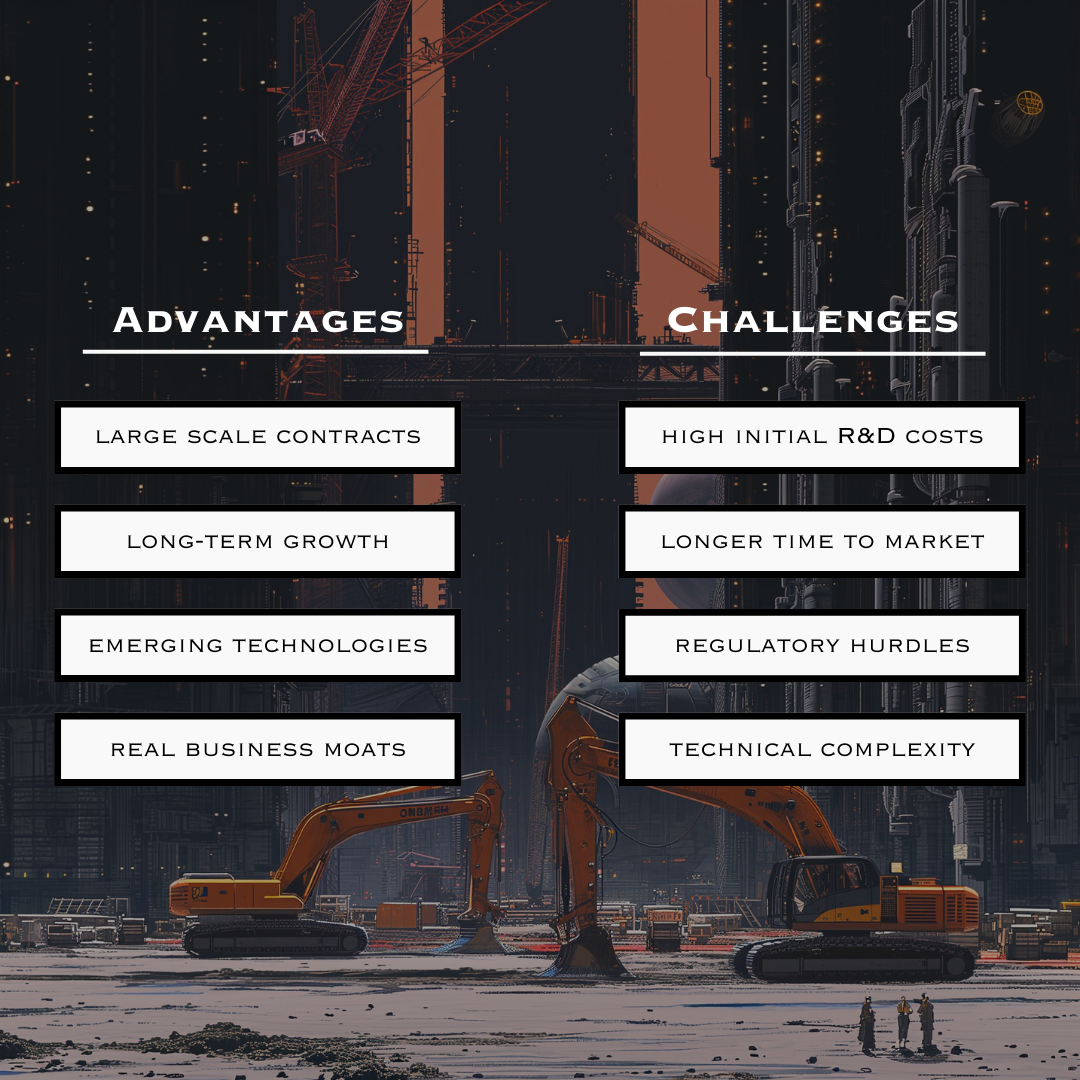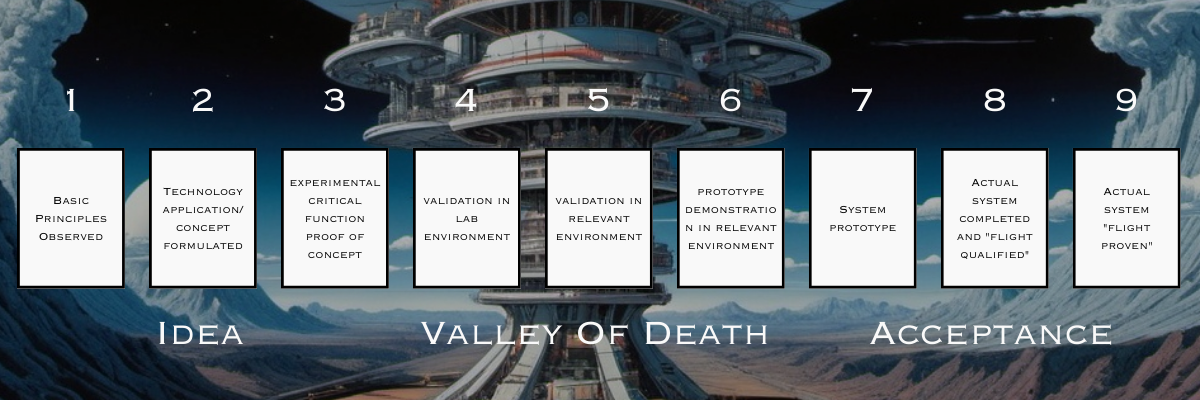- Feed My Brain
- Posts
- Deep Tech 101
Deep Tech 101
The next startup frontier rebuilds reality. Prepare for Deep Tech
Deep Tech 101
The next startup frontier rebuilds reality. Prepare for Deep Tech

Note from Connor
I wanted to thank all of you that came to the deep tech happy hour Landon and I hosted in Chicago.
I’m also currently organizing a deep tech hackathon in Chicago for later this summer. If you are a tinkerer, an engineer, or a designer, we would love to have you. Just fill out this form and we will notify you when we have more details. If you are an investor or business and want to be a sponsor, please reach out to @connor_beem on Twitter.
Thanks!
Atoms Not Bits
Deep tech is having a bit of a moment. Those familiar with the recent ‘Gundo’ hackathon will understand the growing excitement.
You might be wondering, ‘What exactly is deep tech, and why is it a hot topic among VCs on Twitter?” What “deep tech” actually means is a bit up to interpretation, but most agree that it has to have some connection to physical engineering or science. ‘Atoms, not bits’ — meaning working on building physical things instead of digital ones — is the phrase used by people in the industry to differentiate their work from software startups. Historically, many pioneering startups were deep tech companies, such as Apple, IBM, and Intel. These companies all built legendary products by innovating in physical engineering to impact the world that we live in.
So today, we’re going to talk about why we’re in this moment of deep tech revival, what some of the challenges and opportunities in the space are, and what the next decade could look like. After all that, we will end with an awesome case study from Ouros Energy.
If you are looking for a problem set to work on or invest in, or you just watched Iron Man and are all jacked up about engineering, this is the paper for you.
Why Deep Tech Is Having a Moment

the picture that started it all
Since the dot-com boom, most startups have focused on ‘bits not atoms’ — digital rather than physical products — due to the rapid iteration and high potential returns of digital innovation. Software, not hardware, has occupied the psyche of both the general public as well as the investment world.
However, the dominance of social media empires appears to be waning. With increased political strife, global climate challenges, and growing disillusionment with social media, many founders are seeking new avenues for innovation. The current decade is chock full of problems that can only be addressed through physical IRL solutions.
Climate change means we need new energy production and storage.
The potential for unknown forms of warfare means manufacturing and defense innovation needs to accelerate.
Lowering the cost to orbit means that space can become a viable business opportunity.

this is a log graph!
On the investment side, even the major players have noticed this shift in founder sentiment and have started acting accordingly. YCombinator (the legendary accelerator behind pretty much every company you care about) released an updated list of ideas it would like to see in applications. This year, it focussed heavily on categories like space, manufacturing, and defense.

According to Carta, funding for companies making physical products has slowly and quietly started to rise to a stable 40% of total startup funding, and I expect that to rise in the coming years as more and more deep tech companies gain momentum. In general, when VCs see a few startups in a space start to do well, money begins to flow into this sector, which in turn feeds a new generation of startups.
Deep Tech Startups: The Founders Perspective
Deep tech is inherently different from software-focused ventures in a few ways. Firstly, the timelines for development are significantly longer. However, the key question shifts from “Is there a market?” to “Can this be technically realized?”. The challenge usually lies not in market validation but in the technical feasibility of the product. It is for this reason that, despite the worry I hear from many would-be founders, you can still go the traditional VC route if you are a deep tech startup.
I also frequently hear that startups want to raise tens of millions of dollars off the bat because they correctly surmise that it will cost that much to build whatever it is they want to build. But that will not be possible for the majority of founders, so it is important to be realistic about your objectives. Use smaller rounds to build out key innovations to encourage larger rounds of funding and letters of intent where you can. You can even start off with grants to build out an MVP and then take that to fundraise.
This is the route that many successful deep tech companies have taken, and it has been proven viable time and time again.
Challenges
When it comes to deep tech vs software startups, there are a few key advantages you have. But that is not to say that it does not come with some associated challenges.

credit to @radshaanon twitter for the background image
The terms ‘hard tech’ and ‘deep tech’ are often used interchangeably for a reason. Launching a deep tech company is chock full of unique challenges and typically demands a highly specialized founding team. Deep tech startups typically face extended timelines to market and significant regulatory challenges. For example, Varda Space (an in-orbit drug manufacturing startup) had problems getting the required reentry approval from the U.S. Federal Aviation Administration, which operates the targeted landing zones. They planned on keeping their first capsule in orbit for 2 months but ended up having to wait 8 months before finally getting approval to return to Earth. If you don’t prepare for these kinds of setbacks, they can mean the death of your company.
Deep Tech Startups: The Investment Perspective
This portion is just my personal philosophy on how to evaluate deep tech startups. Whenever I meet with a deep tech startup, I try to score them in each category from -2 to 2 (very negative to very positive). How I weigh these scores depends on the industry and product, but almost without fail, the team is the most important. By a lot.
When evaluating startups in the deep tech space I generally look at a few key factors that can be remembered in this fun and intuitive acronym — TDTSS. (I never was very good at acronyms).
Team:
This is the bread and butter of any startup investment. For early-stage startups, the best predictor of success is not the vision or the technology but the founding team. There are very few successful companies that look the same as their initial vision, and the only way to get to that point is with a good team that can overcome obstacles and think creatively. The move from idea to reality will inevitably bring difficulties, foreseen and unexpected, and success demands that you find workable solutions.
A good reputation makes everything easier. This impacts sales, hiring, press, and fundraising, so securing talented individuals early is crucial.
Disruptive Potential:
All businesses, at their core, are made to disrupt the status quo. They are designed to solve a problem differently and more effectively, (If you build a better mousetrap….). But not all businesses are created equal. The more disruptive the company is, the more money there is to be made. On the other hand, this can also mean the more friction they encounter with the established systems. Some things I like to consider here are things like what the competition’s solutions currently are (if there are any), and what sort of litigation these companies might have to worry about.
Technological Readiness:
This is the section I am the least qualified to answer for most deep tech businesses. I am not an engineer or physicist by trade or training, but I love learning and am more than happy to spend a week deep-diving into any field to get a basic understanding. In this case, I generally use the NASA Technology Readiness scale to get a sense of where this tech is. See the graphic below to understand what this scale is.

NASA Technology Readiness scale
Scalability:
Some tech is relatively easy to produce but incredibly hard to scale. To quote Elon Musk: “It is way harder to make the machine that makes the machine than it is to make the machine in the first place.”
Sometimes your product is ready to go, but the pipeline to getting customers is not straightforward, or maybe even legally difficult due to regulations. These are things that can cause a good company to fail.
“Secret Sauce”
This is sort of the catch-all bucket I use for things like connections, legislative windfalls, and other “unfair advantages”. This looks different for every company, but every once in a while you find something that just makes it look like a company is destined to win. Don’t overthink it.

Case Study: Ouros Energy
I met with Ethan Loosbrock, founder of Ouros Energy in order to pick his brain on founding a deep tech company. I’ve been obsessed with batteries ever since writing my paper on the US energy grid and really enjoyed getting to speak with someone working at the edges of battery tech.
Q: What inspired you to start a company focused on battery technology, and how do you envision your technology changing the battery industry?
A: I’m not sure I can point to one thing or moment that pushed me to batteries. I was interested in environmentalism, then engineering (chemical), then energy and sort of backed my way into batteries because it seemed like a bottleneck for a lot of technologies. Our technology will in the most simple terms allow you to do more of whatever you do with batteries today (more flight time, payload, EV range, power, etc) with less cost and weight. That’s the case for current technologies. It is always more exciting to think about the new technology frontiers. Energy weaponry, electric aerospace, and decentralized too-cheap-to meter power and storage are what excite me most.
Q: Can you explain the core innovation behind your cathode technology and how it differs from what’s currently available in the market?
A: Not sure how many specifics I can give out on this publicly but essentially we are removing all of the heavy parts of the cathode which makes our cathodes much lighter and much cheaper without sacrificing any performance metrics. This also is tied to why it is much cheaper than existing cathodes.
Q: What industries do you see being most transformed by your cathode technology, and why?
A: It’s tough to say which will be most transformed, as nothing that touches batteries will look the same. I’d say the most transformed though, would be the industries that don’t exist yet in the form they could. Electric aviation and where it intersects with personal transformation is one I’m excited for. The other one that’s quite scifi and exciting is energy weaponry. Decentralization of energy systems or what I like to call energy sovereignty is another big secondary effect.
Q: How do you see the battery tech landscape evolving in the next 5–10 years
A: I think the major trends will continue but in an accelerated fashion. Higher energy density, lower cost (for some undifferentiated industries) , lithium ion dominating, localization of manufacturing, national champion battery manufacturers, closing the loop with recycling, and massive scaling. It will start to look much more like oil and gas
Closing Thoughts
What Ethan is building is a perfect example of a deep tech company. This is incredibly technical work that requires deep expertise and long timelines. But when you look at what type of impact this technology would have, you can see why it’s worth working on.
I’ll be honest here. I’ve almost exclusively worked in the consumer tech space. However, anyone who knows me well is aware of my long standing passion for deep tech. My favorite books are all sci-fi, and my YouTube “for you” page is pretty much entirely physics and battery tech channels. I think that the reason for my love of deep tech is that it feels so idealistic and optimistic. People build rockets or try to solve climate change because they dream of the stars and a better future, not necessarily and certainly not only because they want to get rich.
Constructing technologies like rockets or batteries is extremely challenging, but it opens up new possibilities for humanity’s future. It’s an act that literally changes what it means to be human for future generations. That’s something that will always be worth pursuing, no matter how unlikely you are to succeed, and something I will always support in any way I can.
Plus big rockets are pretty sweet.

The ever majestic Saturn 5
Bonus:
If you made it this far, sign up for my newsletter for more content like this.
Here are some companies and topics you can dive into to get a better idea of what’s going on in the world of deep tech.
Companies I think are cool:
Varda
Hadrian
Helion
Reflect Orbital
Astro Mechanica
Concepts I am keeping an eye on:
DNA data storage
Digital twins for agriculture (ag tech in general)
Analog computers
Anything energy storage
Supersonic flight
AI design for manufacturing
Reply